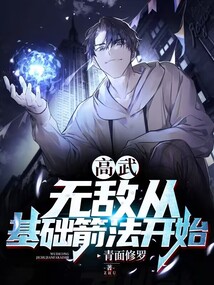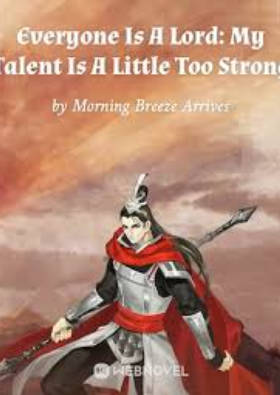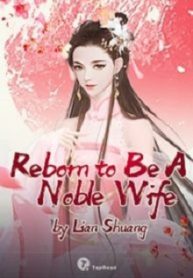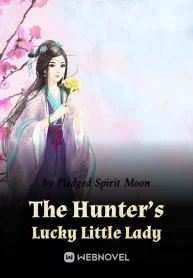"The Romance of the Three Kingdoms" overly deified Zhuge Liang, leading many to overestimate his military talents, and causing some to criticize him as useless based on historical records, believing that he was not as great as portrayed in the novel.
However, those who have truly read "The Records of the Three Kingdoms" would not underestimate Zhuge Liang, as the book spans 65 volumes, with only one volume dedicated to each emperor, and a whole volume dedicated solely to Zhuge Liang.
Zhuge Liang's greatest talent was not leading troops in battle, but rather governing the country. He was a political genius, not a military one.
Prior to "The Romance of the Three Kingdoms," many literati had already praised Zhuge Liang, and most importantly, he was enshrined in the Confucian Temple and honored as a preeminent Confucian scholar, a highly esteemed position in ancient times that could not be achieved simply by writing a novel.
Before the publication of "The Romance of the Three Kingdoms," Zhuge Liang's military talents were also recognized by many military strategists. Sima Yi praised Zhuge Liang's camp layout as "a rare talent in the world," and pointed out his shortcomings in military strategy, but dared not criticize Zhuge Liang's governance abilities. Li Jing also highly praised Zhuge Liang's military talents.
Emperor Xuanzong of Tang established the "Temple of Military Eminence," which enshrined ten of the greatest ancient military strategists, including Zhuge Liang. Although Emperor Xuanzong may have exaggerated Zhuge Liang's military talents, it still proved that Zhuge Liang had made significant contributions in military strategy.
Only Zhuge Liang was enshrined in both the Confucian and Military Temples.
We are bit.ly/3iBfjkV, find us on google.
In the Holy Origin Continent, Zhuge Liang was highly respected because he once defended the Shu Kingdom for a hundred years, and his name was always included in the annual plea for saints in the imperial examination.
Historical records show that Zhuge Liang did not forget to restore the Han Dynasty and unify the Holy Origin Continent before his death. He personally led the troops to battle before his life came to an end on the Wuzhang Plains, where the enemy also had a Semi-Saint.
Fang Yun valued Zhuge Liang particularly because there were many poems and essays about him, which had not yet appeared in the Holy Origin Continent, and the continent had a very magical power called "Summoning Saints."
After distinguishing between the two Zhuge Liangs, Fang Yun continued to write quickly. He encountered questions related to the two other Semi-Saint examiners, which he remembered, and the Library of Heaven's Path added new books.
Fang Yun quickly finished the first three exam papers, most of which were very simple, but there were three questions that were very difficult. One of the questions even had a textual trap, which might not be answered correctly even by following the book. Fortunately, Fang Yun had lived in an era of information explosion, and word games were nothing to him.
This was only the simplest Child Scholar exam, and the Talented Scholar exam was even more difficult. However, the real difficulty lay in poetry, classics, and strategy.
The later exams were to recite the poems and essays of all the Saints, followed by fill-in-the-blank questions, which might be very difficult for others, but were extremely simple for Fang Yun.The brush was writing slowly, and by noon, Fang Yun had only written up to the nineteenth page and had to take a break to eat.
Fang Yun ate a white flour cake with water and stood up to move around in the small room before continuing to answer the questions.
Next was the final nine chapters of the exam, a total of eighteen questions, requiring the recitation of the famous chapters of all the saints mentioned in the questions.
The works of Confucius and the six semi-sages were required in the first seven questions and were not difficult, as most candidates could answer them.
The remaining eleven questions came from other half-sages, with each of the three half-sage examiners' famous chapters occupying one question. Fang Yun had memorized them all and stored them in the Qishu Tian Di.
After answering all the questions, Fang Yun put down his brush and rubbed his sore wrist.
"Dong! Dong!"
Two gongs sounded, and Fang Yun immediately knew it was two in the afternoon.
The official time on the Holy Origin Continent was still based on the twelve-hour system, but a hundred years ago, the craftsmen of the Gongshu family divided each day into two twelve-hour periods to make time more accurate. As the new time unit was only half of an hour, it was called an hour, and the old unit was called a big hour. Numbers were more convenient than characters, and they became popular in the military, where every second counted, and gradually spread to the public.
In another hour, the exam would end, and then the poetry exam would be given.
Fang Yun carefully checked his answers for an hour and found no mistakes or typos, and he answered all the questions correctly.
"Unfortunately, I haven't practiced calligraphy much before, and my handwriting is a bit poor. According to the rules, I'll be downgraded by one level. I won't get an A, but I should be able to get a B. I'll have to work hard on my calligraphy after the Child Scholar exam. It's essential on the Holy Origin Continent."
Finally, Fang Yun wrote his exam number, name, and address in the designated space.
Soon, the bronze gong rang three times, and the carriage came again. There were low murmurs and complaints nearby, indicating that most people hadn't finished and felt they didn't have enough time.
The examiners gave Fang Yun the poetry exam and took away the thirty "Please Holy Words" exams.
Fang Yun looked at the poetry questions and felt relieved that there were no requirements for tones, only rhyming and staying on topic. Five-character, seven-character, quatrain, regulated verse, ci, parallel prose, or fu were all acceptable. The poem had to rhyme with one of the four tones: horizontal, shao, dong, or yuan.
The themes were also common, with a choice between spring and borderland. Fang Yun thought for a moment and decided to write a borderland poem because of his personality.
Fang Yun's eyes were blank, and he didn't know where to start.
"With my current poetry level, I can only get a C at best among the A, B, C, and D grades. It's very likely that I won't pass the Child Scholar exam. If I fail, I'm as good as dead!"
Fang Yun pondered for a long time, sighed lightly, and silently recited the Qishu Tian Di in his heart.This time, there were no books or prominent golden characters.
Fang Yun guessed that there might not be a fixed answer, so Qi Shu Tian Di couldn't accurately list it.
So Fang Yun listed the conditions in his mind: he had to use one of the four rhymes, it had to be a border poem, and it had to conform to the idea of war. It must be a famous work, and he must get a good ranking and become a Child Scholar if possible.
Fang Yun picked and chose and finally selected a poem by the poetry saint Du Fu, "Year-end", a five-character regulated poem, which was a very famous border poem and the rhyme matched the horizontal part of the four rhymes.
Fang Yun didn't write directly on the exam paper, but wrote it on a piece of white paper as a draft. After writing it, he checked if it was appropriate or not. After all, there were too many taboos in the exam.
"Year-end, far away as a guest, still using soldiers on the border. Smoke and dust invade the snowy mountains..."
When he wrote to this point, Fang Yun suddenly stopped writing.
At this moment, outside a pavilion near the examination room, the county magistrate and the county academy's master suddenly stood up and looked towards Fang Yun's direction.
After watching for a while, the two smiled at each other and saw the joy in each other's eyes.
The state academy's student, who was standing a little behind, smiled and said, "Congratulations, congratulations, with such talent, at least you will become a county scholar with your poetry, and even possibly a prefecture scholar. You two have done a great job of educating him. This year's assessment will definitely be excellent!"
The county magistrate, Cai He, smiled and said, "No, no, Wan Xuezheng, you are exaggerating. The talent has not been determined yet, and we cannot draw conclusions easily."
Wan Xuezheng said again, "It should be that prodigy, Fang Zhongyong."
Cai County Magistrate hesitated for a moment and said, "No, I remember very clearly that Fang Zhongyong is not in that direction."
Cai County Magistrate was an Imperial Scholar and had a powerful talent, so he could remember everything he saw.
Just as Cai County Magistrate finished speaking, the three of them looked towards Fang Yun's exam room direction in surprise again.
"It's a pity that the talent has declined." Cai County Magistrate sat down disappointedly.
The county academy's master sighed and said, "What a pity."
Wan Xuezheng hurriedly said, "Don't worry, maybe that candidate can continue, and besides, that prodigy hasn't finished writing yet."
Suddenly, the three of them turned their heads together and looked in another direction, showing a look of expectation.
After a while, Cai County Magistrate smiled and said, "Great! The talent is stable, the poetry is good enough to become a county scholar, and the one sitting in that position is Fang Zhongyong!"
The county academy's master smiled and stroked his beard, saying, "Indeed, he is the prodigy of our county."
"Congratulations, congratulations!" Wan Xuezheng congratulated again, then looked regretfully towards Fang Yun's direction.In the examination room, Fang Yun put down his brush and frowned.
"This poem won't do! I'm not even a Child Scholar yet, and I'm criticizing the court officials. The three examiners may not all like it, and they may use it as an excuse to lower my rank, even if the poem is good. But if this poem doesn't work, the others won't either. Some are not good enough, some are too good, some don't rhyme, and some are obviously beyond my ability to write."
Fang Yun thought for a while, then crumpled up the paper and put it on the desk.
He picked up his exam paper and thought silently for a while. Soon, he remembered the feeling of spring after the rain today, and a famous poem naturally came to mind.
Fang Yun wrote.
Spring Morning
Sleeping in spring, unaware of the dawn,
Birds singing everywhere;
The sound of wind and rain at night,
How many flowers have fallen?
One of the famous poems by Tang Dynasty poet Meng Haoran.
As soon as the poem was finished, his talent erupted like a fountain.
Fang Yun immediately felt a warm flow of energy descend from the sky and enter deep into his brow.
Fang Yun widened his eyes in surprise. He didn't expect to have a talent breakthrough during the exam and become a Child Scholar!
All the warm energy converged at the "Wen Palace" in his brow, then exploded and flowed into every part of his body, healing the wounds he received last night at a miraculous speed.
Fang Yun felt his eyes itch and blinked involuntarily. His nearsighted eyes not only recovered, but his vision was several times better than a normal person's.
"It's the power of talent! Every time you increase your literary rank, your body will be enhanced in every way, and your lifespan will increase. Great Scholars live to 120, and Half-Sages live to 200. After taking care of my body, even as a Child Scholar, my physical fitness is stronger than that of elite soldiers!"
At the same time as the poem was finished, the three officials of Cai County, not far from the examination room, suddenly jumped up from their chairs and looked at Fang Yun in disbelief.
"This..." Wan Xuezhen was speechless.
The county magistrate murmured to himself, "A talent worthy of the court, almost like a famous poet in Mingzhou. As long as it is propagated a little, it will be a poem of Mingzhou!"
Then, the three people's faces changed drastically, and they exclaimed at the same time.
"Pre-Saint Child Scholar!"
After passing the Child Scholar exam, one must go to the Holy Temple to worship, and then receive a talent breakthrough to officially become a Child Scholar. If the talent breakthrough occurs before that, it is called a Pre-Saint Child Scholar.
An ordinary Child Scholar is just a "disciple of all the saints," but a Pre-Saint Child Scholar is a "student of heaven," with extraordinary significance, because Confucius and King Wen of Zhou were both "students of heaven."
"The Holy Origin Continent has a population of tens of billions, and it may not produce a Pre-Saint Child Scholar in three years! The Holy Jing Kingdom is blessed by heaven! County magistrate, you are blessed by heaven!" The county magistrate was trembling with excitement.
Cai County's magistrate took a deep breath and said, "That position is where the poem was interrupted just now."







